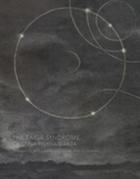
In a year that may or may not be the present, but is certainly not too long ago, an unnamed man hires an unnamed woman to investigate the disappearance of his second wife. Except her disappearance may not be one at all, but rather a flight--from him, with another man, to the taiga, a boreal forest that might be in any number of cold, northern countries.
There's a lot we don't know in The Taiga Syndrome, but the lack of detail makes Cristina Rivera Garza's (The Iliac Crest) strange story all the more haunting. Allusions to classic fairy tales (the crumbs left behind Hansel and Gretel, and wolf of Little Red Riding Hood) underscore the dark nature. Garza doesn't stop with fairy tales, however; she inverts traditional tropes from any number of genres to great effect. The subject of the mystery is not the crime or even the victim, but the detective. The unreliable narrator reports on her own unreliability. She and her translator never believe they will succeed in their search, but start--and continue--anyway.
Garza's prose, translated from Spanish by Suzanne Jill Levine and Aviva Kana, is stark and strange and lyrical, told in a series of memories written down by the unnamed narrator. "I remember the passage of the light. The word: 'filter.' The word: 'wedge.' Above all, I remember that everything we see, we see through a crack. I remember, right now, how it saves us." It's unclear whether anyone is indeed saved by this in the end--but that's not the point, really. The Taiga Syndrome is not about answers, but about questions: Where is the line between the real and imagined, and does it even matter in the end? --Kerry McHugh, blogger at Entomology of a Bookworm

